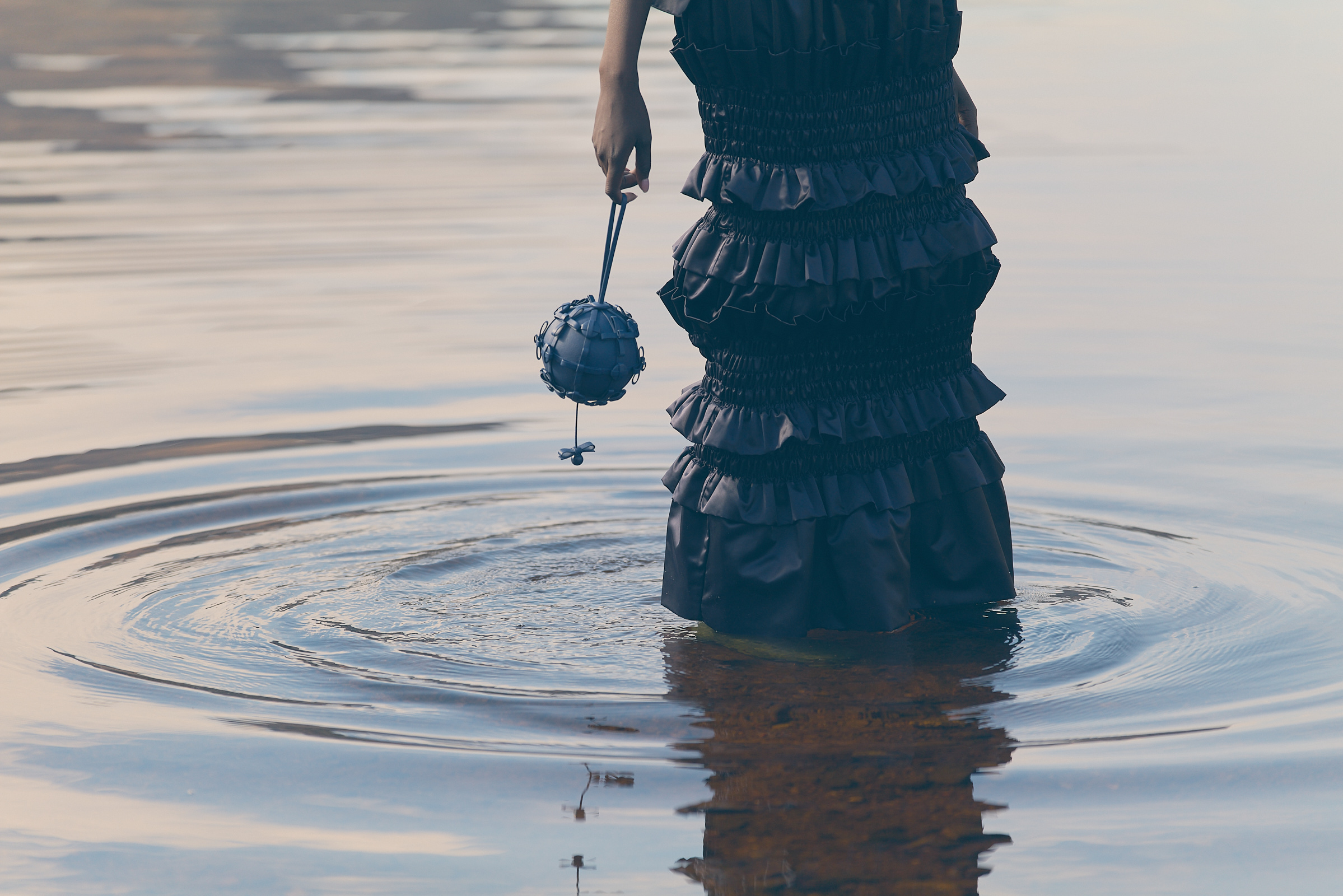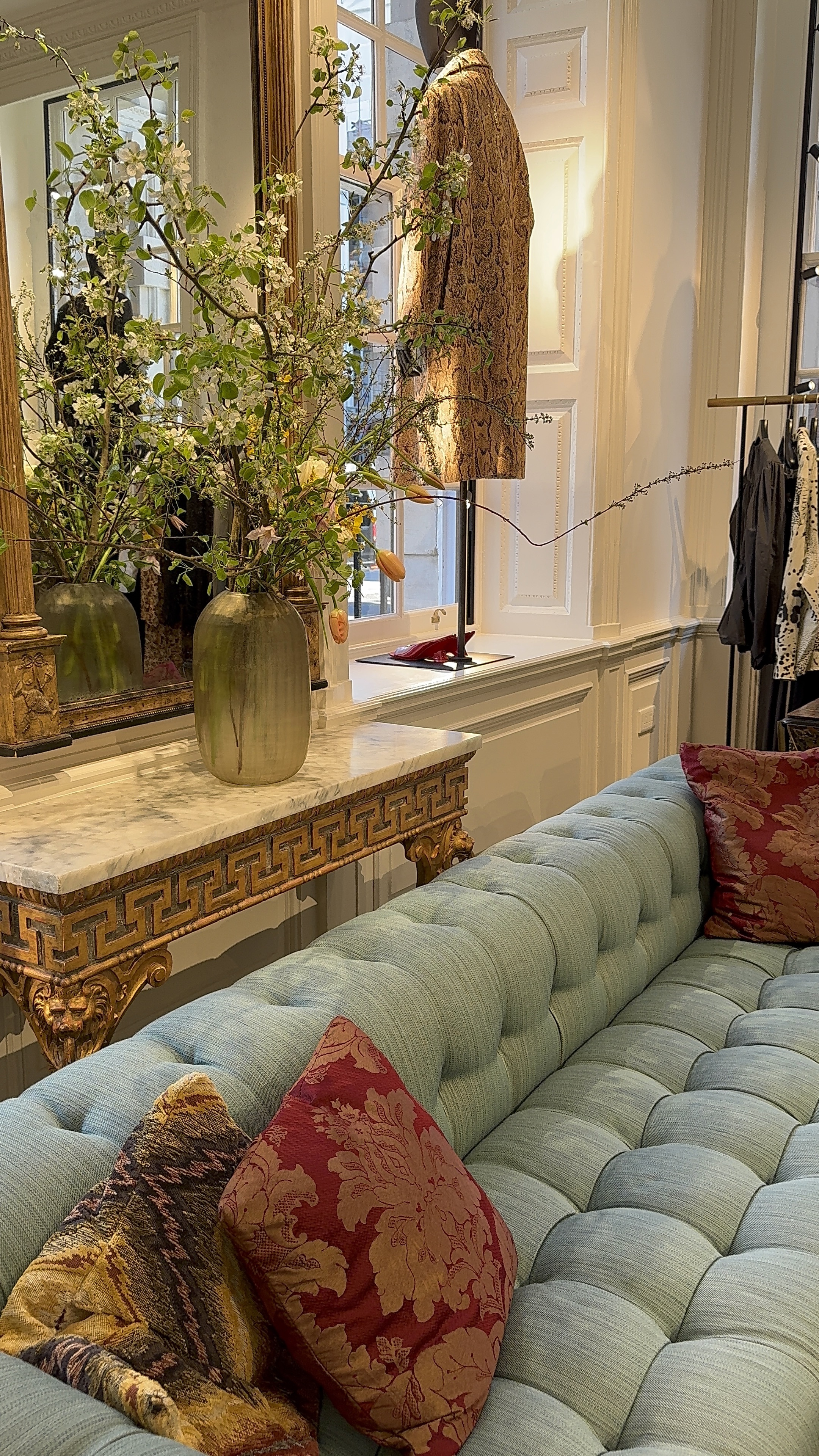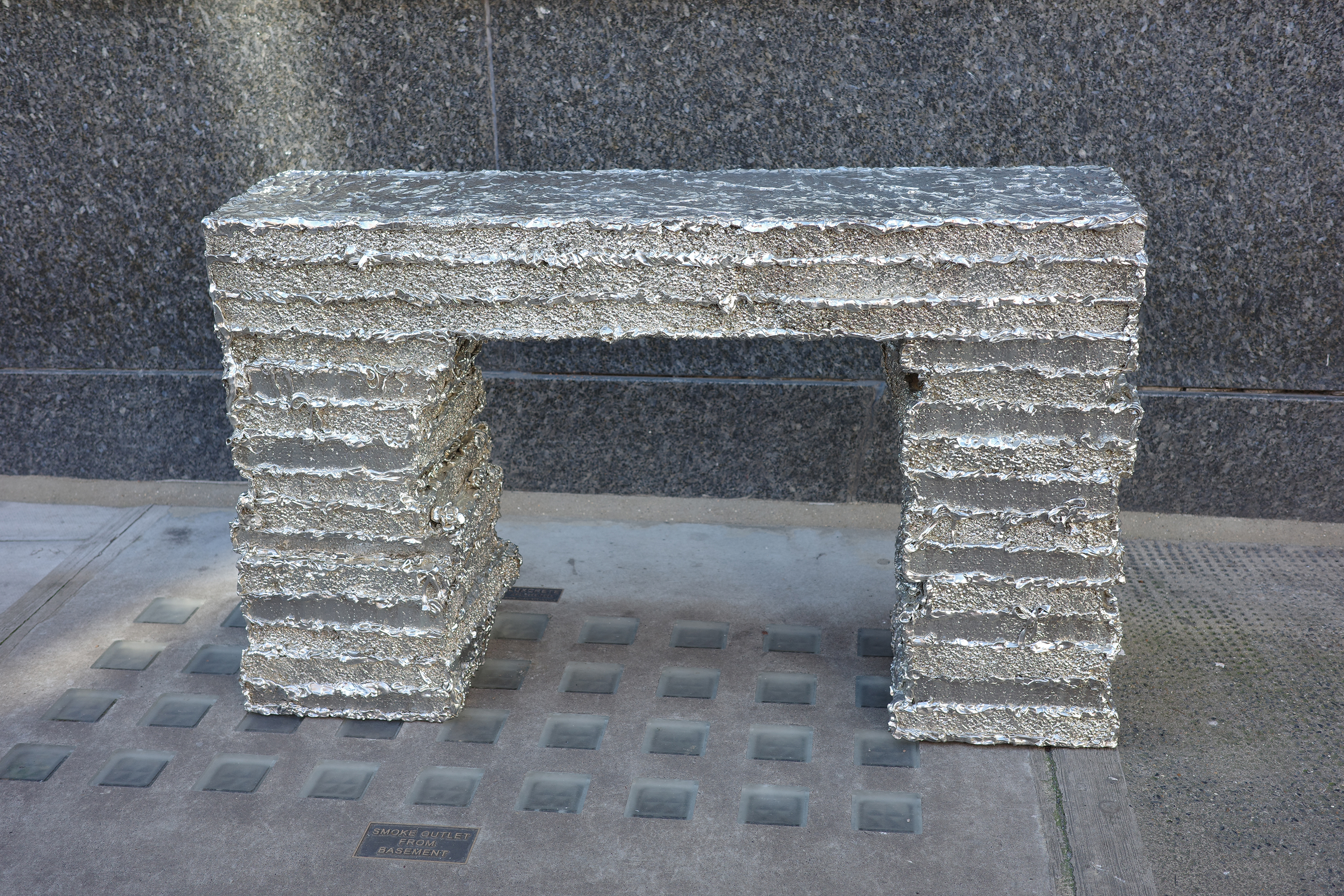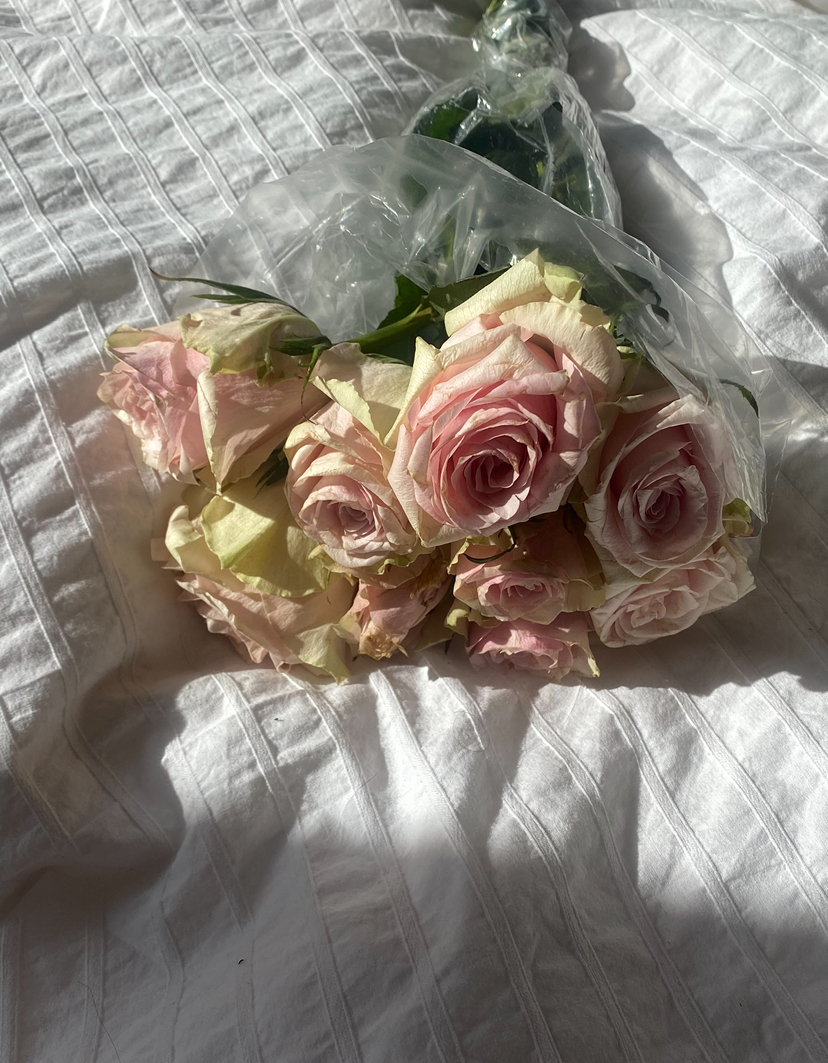
Because We're Obsessed | Apr 16, 2025
Polene x Roisin Pierce

Because We're Obsessed | Apr 15, 2025
DRIES VAN NOTEN STORE

Just Because... | Apr 11, 2025
Salone 2025


Female Founded: Tenderbooks
Blending bookshop with curated cornucopia, we speak with Tamsin Clark, founder of Tenderbooks
A decade after founding Tenderbooks, Tamsin Clark's shop has transformed into a literary world rather than just a simple storefront. Curating a supreme selection of rare, vintage, and out-of-print books, Tamsin has built a community of readers, artists, and writers. We delve into the inner workings of Tenderbooks and Tamsin's own vision.
Bookshops occupy a special place in our hearts. The smell of a new book, the comforting hush of muffled voices, the opportunity to retreat, explore, disappear completely, or find yourself anew. While much of our media is being gobbled up by the digital realm, the sanctity of bookshops remains steadfast amid the decline of physical media. Ten years ago, when Tamsin Clark founded Tenderbooks, there was a general belief that bookshops and even books themselves would be replaced by their digital counterparts, with Kindles and services such as Audible hailed as the future of reading. Yet, a decade later, Tenderbooks maintains its presence on one of London’s iconic literary streets, Cecil Court, and it appears that an overwhelming appreciation for the escapism provided by physical books and stores is worth far more than any convenience a Kindle might offer.
Tamsin is the beating heart of Tenderbooks. Curating a selection of rare, vintage, and out-of-print books, Tamsin’s practice seems to encourage a particularly engaging form of preservation. We are invited to pore over the pages of books that perhaps don’t colour within the lines of conventional publishing, and our worlds are opened up to a myriad of artists, writers, and book makers. We caught up with Tamsin to discuss her curatorial processes, her personal touches, and what could be next for Tenderbooks.
Cecil Court is an iconic literary location steeped in a rich legacy. How do you balance the weight of legacy with an attitude that reflects today and tomorrow’s need in publishing?
Tenderbooks is located on a historic street in Covent Garden. At our space you can find contemporary publishing in art, design, fashion and literature, alongside rare books, handmade zines and self-published works. I’m always looking to share unusual approaches to the form of the book, and to make space for genres to overlap. I hope that this mixture of material opens up the possibility of chance discoveries.
You started Tenderbooks 10 years ago; what gap in the market did you set out to fill? How have your initial aspirations changed?
I feel fortunate that the small scale of our store allows me to develop close relationships with publishers and artists over time. I value the opportunity to have a hand in distributing someone’s work and getting to know the stories of how each publication came about. The limited-run zines handmade by BlackMass Publishing, or the illustrated artist books from Brazilian imprint Familia Editions are just a couple of examples that are important to me. Over the years, the desire has always been to expand our offering, both in terms of the stock we carry and the events we host. I wouldn’t say my aspirations have changed, it’s always about how best to support our community in a fun and friendly way.


How does London continue to energise your creativity?
There is a very diverse community of people making beautiful things here.
The publishing industry has typically been perceived as mostly male-dominated. How have you supported female authors or colleagues to cut through and change this tradition?
There are many examples of incredible women booksellers. I often think about the feminist bookstore Silver Moon that was located on the Charing Cross Road in the 1990s, just a short walk away from where our store is now. Meanwhile, a few memorable moments from our recent programme at Tenderbooks include signings with author Deborah Levy, artists Liliane Lijn and Poppy Jones, as well as a talk about Sri Lankan architect Minnette De Silva.
What makes the printed page so unique in today’s digital age?
I like to think of print as a quiet refuge. In contrast to a digital world of endless scroll and soundbites I feel the printed page will always go deeper. Our name Tenderbooks, subtly refers to the inherent tactility of a printed object.
When curating your stock, what qualities do you look for in a book/author?
It could be an unexpected subject matter, a thoughtful sequence of images, or perhaps quite simply how the book feels to hold. Some of our bestsellers include a visual archive of beehives, a magazine without words, a photobook contained in a real cigarette packet, a zine about
Indonesian cooking, and a dictionary of colour combinations.
Why did you decide to focus on rare and specialised books?
I’m always interested in representing forms of publishing that may fall outside the usual distribution channels. At Tenderbooks you might find a new artist monograph, an out-of-print photobook, an artist record, a t-shirt, or a miniature zine that you can hold in the palm of your hand. We receive fresh stock daily, so the selection is constantly changing. I hope the selection feels new for customers each time they visit.
You hold many talks, events, pop-up shops - IRL is alive! Why is this element of the bookstore important to you?
There’s an important social aspect to book culture. What better way for books to find new readers than through shared conversations and gatherings? I like to think of our bookstore as a community of ideas.
Favourite fiction and nonfiction book you’ve read in the last year?
Marouane Bakhti’s How to Leave the World, a stunning reflection on identity that shifts between the forest and the city. Constance Debre’s defiant sultry novel Love me Tender. World of Interiors, Aurelia Guo’s collage on migration and living conditions. Alphabetical Diaries Sheila Heti’s brilliant composition from an archive of journal fragments.
What’s next for Tenderbooks?
Our Tenderbooks Imprint is publishing a limited edition t-shirt by photographer Lina Scheynius. This is the first time Lina’s artwork will have appeared on a garment. In late April we will host an installation showing one of a kind sweaters by Waste Yarn Project featuring texts by Dal Chodha.
